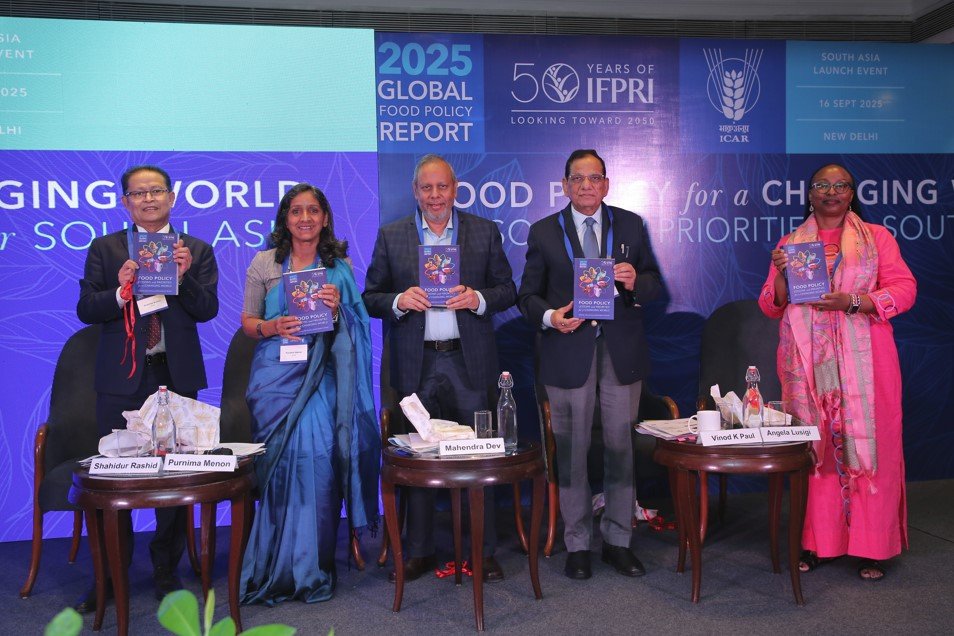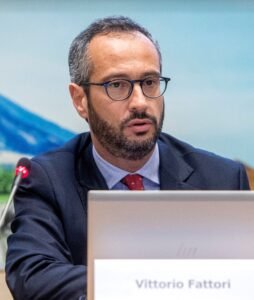Saturday, 7 February 2026
IFPRI and ICAR convene regional dialogue on food policy for South Asia
The dialogue brought together senior government leaders, researchers, and development partners to discuss priorities for resilient, inclusive, and healthy food systems The International Food Policy Research Institute (IFPRI), in partnership…

The dialogue brought together senior government leaders, researchers, and development partners to discuss priorities for resilient, inclusive, and healthy food systems
The International Food Policy Research Institute (IFPRI), in partnership with the Indian Council of Agricultural Research (ICAR), convened the South Asia Dialogue on Food Policy in New Delhi to mark the South Asia launch of IFPRI’s 2025 Global Food Policy Report (GFPR).
The dialogue brought together senior government leaders, researchers, and development partners to discuss priorities for resilient, inclusive, and healthy food systems. Key themes included food systems transformation, climate and environment, and diets and health.
Prof. S. Mahendra Dev, Chairman, EAC-PM, underscored that growth linkages and rural investments remain critical even as new priorities emerge: “Governments and the private sector must work together to reshape food systems that deliver affordable, healthy, and diversified diets.”
Dr Vinod K. Paul, Member, NITI Aayog, stressed early action: “If we truly want to break the intergenerational cycle of malnutrition, we must act before pregnancy.”
Anu Garg, Development Commissioner, Odisha, pointed to the state’s turnaround from hunger to surplus, while Dr Arabinda Kumar Padhee, Principal Secy, DAFE, Government of Odisha, emphasised integrated planning: “Odisha is perhaps one of the few states where we have both a climate resilience cell and we are going to have a Gender Responsive Cell. Through CRC and GRC, we wanted to build into our design the gender and climate lens from the beginning.”
Dr Angela Lusigi, UNDP India, reminded participants that “climate vulnerability is deeply intersectional – it intersects poverty, gender, geography, and social status.”
Summing up, Dr Shahidur Rashid, IFPRI South Asia, noted: “Three stubborn challenges demand urgent attention: climate change, persistent undernutrition, and the need for healthier, more diverse diets.”
Technology
Australia Approves Commercial Release of GM Purple Tomato
Feb 06, 2026 | Australia
Detmold Group Reports Progress on Emissions Reduction, Circular Packaging Goals
Feb 05, 2026 | Australia
FAO on Balancing Climate Urgency and Food Safety in Emerging Agrifood Technologies
Feb 05, 2026 | Food Security
Food Testing
AFNOR International Eyes Global Food Safety Growth with HACCP Group Takeover
Feb 04, 2026 | Australia
Incheon National University researchers uncover hidden toxin risks during nutrient-starved algal blooms
Feb 02, 2026 | Food Safety and Testing
How audit-led approaches are reinforcing trust in retail food safety
Feb 02, 2026 | Food Safety and Testing
More Popular
Fertility Meets Farm-to-Table Dining with Launch of ‘The Fertility Table’ in India
Feb 06, 2026 | Company News
Australia Approves Commercial Release of GM Purple Tomato
Feb 06, 2026 | Australia
Alternative Proteins Could Add €111 Billion Annually to EU Economy by 2040, Study Finds
Feb 06, 2026 | Europe






